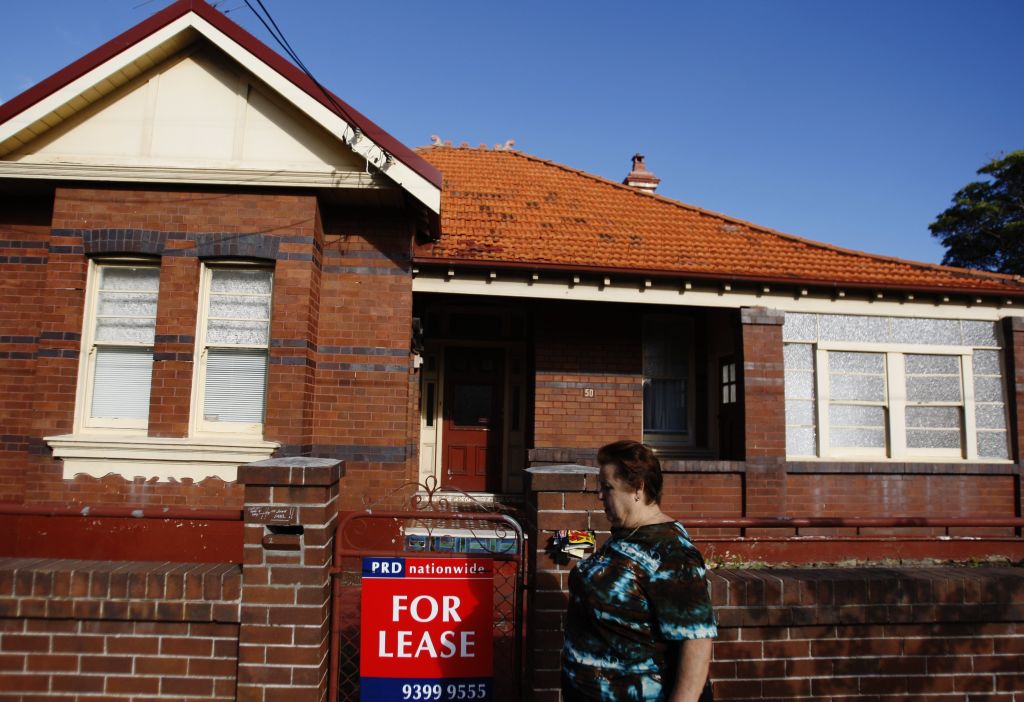UK government bans no-fault evictions for renters; Australians left wanting

Joan had lived at a property in Jindera, southern NSW, for more than two years when, out of the blue, she was told she and her family would have to leave.
“About 28 days before the lease expired, we got a letter left on doorstep saying we needed to have moved out in 28 days,” the 33-year-old, who did not want to use her surname, said.
“We did find another house. But now we’re so nervous about being evicted that, to make us feel more secure, we basically live out of boxes. This is no way to live. Tenants have lives. We found out later that the owner sold the house.”
In NSW, tenancy laws allow landlords to evict renters with 30 days notice after their fixed lease ends — but a recent push in the United Kingdom to ban these “no-fault” evictions has reignited debate about the rights of tenants here in Australia.
What is the UK government looking to change and what does it mean for tenants and landlords? Moreover, why haven’t Australian governments made similar changes?
This month, British Prime Minister Theresa May announced her Conservative government would change a long-standing policy and seek to abolish powers that allow landlords to evict tenants at short notice without good reason.
“Everyone in the private sector has the right to feel secure in their home, settled in their community and able to plan for the future with confidence,” Mrs May said.
“Landlords will still be able to end tenancies when they have legitimate reasons to do so, but they will no longer be able to unexpectedly evict families with only eight weeks’ notice.”
Mrs May said her government would consult on new legislation to abolish section 21 of the UK’s Housing Act, which allows landlords to write to tenants informing them that they “require possession of the dwelling-house”.
The opposition Labour Party had recently pledged to do the same and a network of tenancy groups gathered 50,000 signatures in 10 weeks on a petition to end the controversial section.
Heather Kennedy, one charity worker involved in the push, said she was evicted under the section last year.
“I know how brutal and terrifying no fault evictions are,” she said.
Evictions have had a profound impact. Last year, one group, Generation Rent, analysed UK housing department data and found 216 households were being evicted under section 21 each week, making it the largest single cause of homelessness.
Polly Neate, chief executive of Shelter, a major housing and homelessness charity, declared the announcement an “outstanding victory” for the nation’s 11 million private renters.
“One in four families now privately rent their home, as do hundreds of thousands of older people. And yet, we frequently hear from people with contracts shorter than your average gym membership, who live in constant fear of being thrown out at the drop of a hat,” Ms Neate said.
“Ending section 21 evictions will transform these renters’ lives, giving them room to breathe and put down roots in a place they can finally call home.”
In the past five years, Shelter pointed out, 20 per cent of families renting privately had moved at least three times. Ten per cent said a landlord or letting agent had thrown out their belongings and changed the locks.
While the announcement was applauded by tenants’ advocates and homelessness charities, landlords’ organisations urged caution.
Richard Lambert, the chief executive of the UK’s National Landlords Association, said owners often have “little choice” but to use section 21.
“This change makes the fixed term meaningless, and so creates a new system of indefinite tenancies by the back door,” he said.
David Smith, from the Residential Landlords Association, warned changes to the section could push more owners to short term letting, like Airbnb.
“For all the talk of greater security for tenants, that will be nothing if the homes to rent are not there in the first place,” he said.
“We call on the government to act with caution.”
While housing is a state issue in Australia, this is not the case in the UK. The UK has no equivalent to Australia’s “states”, though Wales, Scotland and Northern Ireland have some control over their own territories after UK’s parliament “devolved” some powers to a local assembly – a more local form of government.
Scotland has already abolished no-fault evictions, and Wales, only days before Ms May’s decision, indicated it would do the same.
Consumer group Choice has said Australian tenants are “left in the dust as far as rental rights go”, noting that it is one of few OECD countries to allow no-grounds evictions.
A NSW Fair Trading study recommended in in 2016 that the state make no changes to its “no-grounds” termination policy, which allows a landlord to give 90 days notice before evicting.
“The government should consider other ways of improving security of tenure in the rental market, including through facilitating the use of longer fixed term leases,” Fair Trading found.
All jurisdictions except Tasmania allow for no-grounds evictions.
Joan, who has been a landlord and a tenant, said the interests of tenants should be the first priority. “Security in home and shelter is a top human need,” she said. “The landlord comes second, as financial security is a secondary need.”
The UK government is expected to begin consultation to end no-fault evictions in coming months.
We recommend
States
Capital Cities
Capital Cities - Rentals
Popular Areas
Allhomes
More
- © 2025, CoStar Group Inc.







